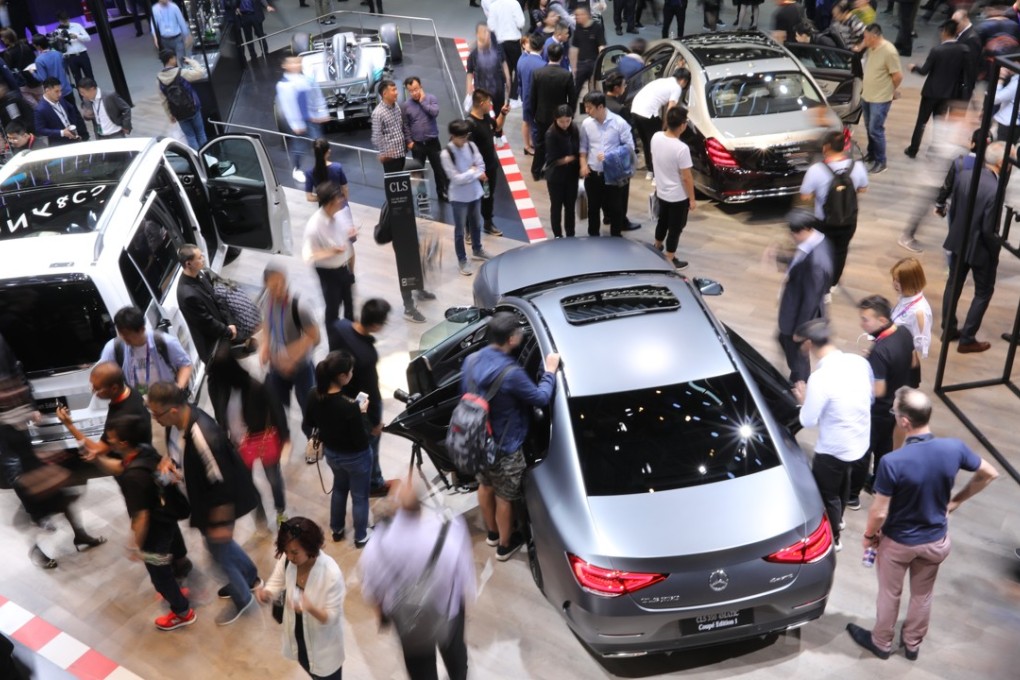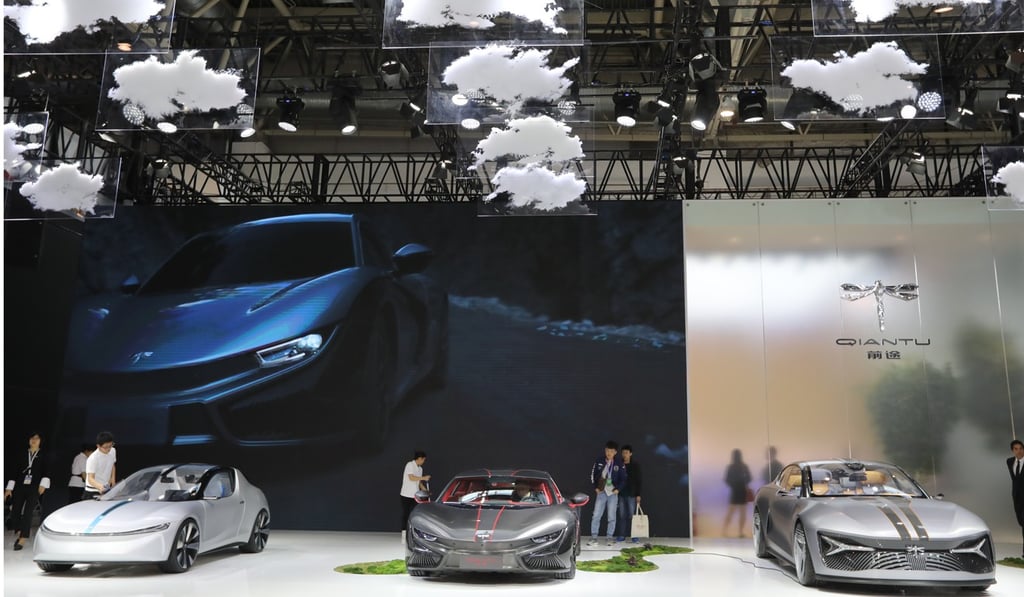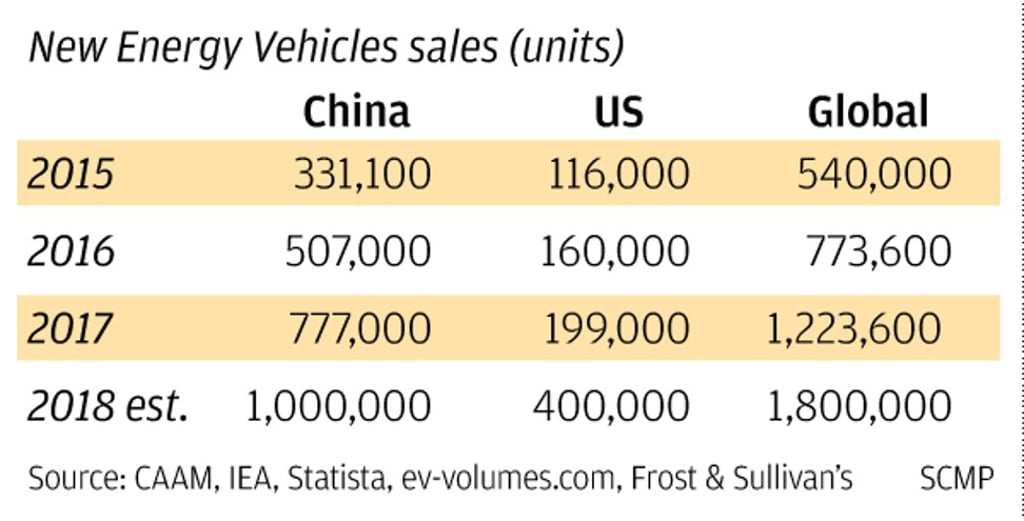China’s electric car market is growing twice as fast as the US. Here’s why
Domestic carmakers showcased seven out of 10 new energy vehicles at this year’s Beijing Auto Show

When it comes to electric vehicles (EVs), China might just have the upper hand, with domestic carmakers showcasing seven out of 10 new energy vehicles at this year’s Beijing Auto Show.
A total of 1,022 models are on display at this year’s event. Of that number, 174 are new energy vehicles including 124 made by Chinese companies.
Foreign carmakers could tip their future China plans this week
Last year, 777,000 EVs were sold in China, up 53 per cent compared to 2016, so that is about 2.7 per cent of overall sales of 28,879,000 units sold in 2017, according to China Association Of Automobile Manufacturers (CAAM).
As a result of the strong growth in EVs, China, which is now the largest EV market in the world, has also seen a surge of start-ups focusing on building new energy cars.

